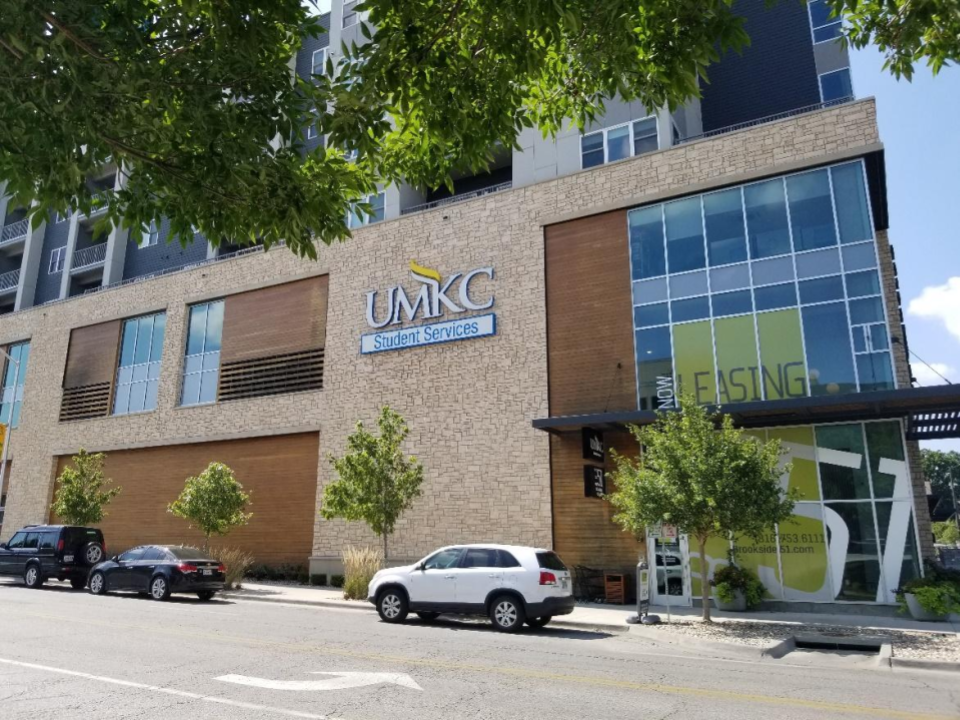September is recognized as National Suicide Prevention Month to raise awareness and open the doors for more conversation on mental health.
College students are at a heightened risk for mental issues that can lead to suicide, which is the second-leading cause of death in people ages 15-34 years old. Mental illnesses such as depression or anxiety often develop in college students because of the intense change of living away from home for the first time, as well as the immense amount of stress from school.
“It is not easy to go to college, and earning a college degree is a very rigorous and demanding experience,” Dr. Arnold Abels, director and clinical coordinator of UMKC Counseling and Disability services, said.
UMKC provides a host of mental health services and organizations that aim to get students and faculty the help they need and eliminate the stigma surrounding the subject.
UMKC Counseling Services
Located in the Brookside 51 building, UMKC Counseling Services employs full-time staff who are ready to provide counseling services to people struggling with mental illness. These services include crisis intervention and individual, group or relationship counseling. Everything remains confidential during a counseling appointment.
Students must fill out paperwork before an initial consultation, and this paperwork assesses the reason a student came in and the best direction for them moving forward.
“Our staff is highly qualified and trained to deal with challenging situations such as suicidality, trauma, domestic violence, grief, loss and many other types of crises,” Abels said. “The safety, well-being and immediate needs of our students is our first and highest priority.”
UMKC Counseling Services offers students eight free sessions, after which they can continue at a rate of $15 per session. Students have access to 12 sessions per academic year.
National Alliance on Mental Health (NAMI)
This organization’s chapter at UMKC aims to provide resources to students, give tips on self-care and combat stigmas surrounding mental health.
NAMI also hosts events throughout the semester, including their NAMI Talks.
“Our biggest events are usually NAMI Talks in which we choose a topic such as ADHD awareness, disability awareness, anxiety or OCD,” Quincy Wells, president of NAMI’s UMKC chapter, said. “For these talks, we invite members of the UMKC or KC community to speak and then we hold a Q&A for any questions the audience may have.”
Green being the color of the mental health ribbon, NAMI will be hosting a “Green Out”-themed event in early October. This event will have interactive information and resources available for students. They also hold Zoom meetings one Sunday a month at 2 p.m. where they discuss upcoming events and brainstorm ideas.
Roos for Mental Health (RFMH)
RFMH works to provide resources that promote self-care strategies. It also aims to educate students and faculty on the link between mental health and sleep, physical exercise, nutrition, relationships, and other topics.
RFMH holds events across campus, such as their Mental Health Mile Color-Walk on Sep. 9, to encourage positive mental health.
“With our recent Mental Health Mile, we had over 250 students, staff and faculty attend, and we received a lot of feedback about what a positive experience it was, especially for those who do struggle with mental health issues in feeling more supported and acknowledged on campus,” co-chair of RFMH Kathryn Brewer said. “This is our hope – to normalize mental health issues – as they truly do impact everyone.”
The Oliver Club
The Oliver Club is for UMKC Law Students, and it encourages mental health and wellness in a relaxed and inclusive environment for students to unwind. Law school can stress out students, so the Oliver Club works to develop important skills to handle stress and self-care.
The club conducts meetings on the last Tuesday of every month.
National Suicide Prevention Month is a time for students to discover the resources and information to help themselves and others.
“Too many people assume someone else will say something, so they don’t say anything when they notice someone hurting or struggling,” said Brewer from RFMH. “But in general, listening without judgment is important and letting the person know they are not alone.”
Though the rate of suicide has been steadily increasing at a 33% rate from 1999 to 2019, many do not seek out the help they need because of the stigma surrounding mental illness
“Seeking help from others allows one to lift a huge weight off their chest,” Wells said. “Mental illness is nothing to be ashamed of or something one should hide from others. Support is vital when trying to get better.”
If you or a person you know is considering suicide, don’t hesitate to call the 24/7 National Suicide Prevention hotline at 1-800-273-8255.
cbskbf@umsystem.edu









Tracy Turner • Sep 29, 2021 at 6:30 am
Many of us are feeling stressed out right now, not just because of this pandemic. In today’s times, Millennials and Gen Zs are easily getting stressed and their anxiety is migrating from day-to-day into their school/workplace. It’s high time that we take care of our mental health along with our physical health.